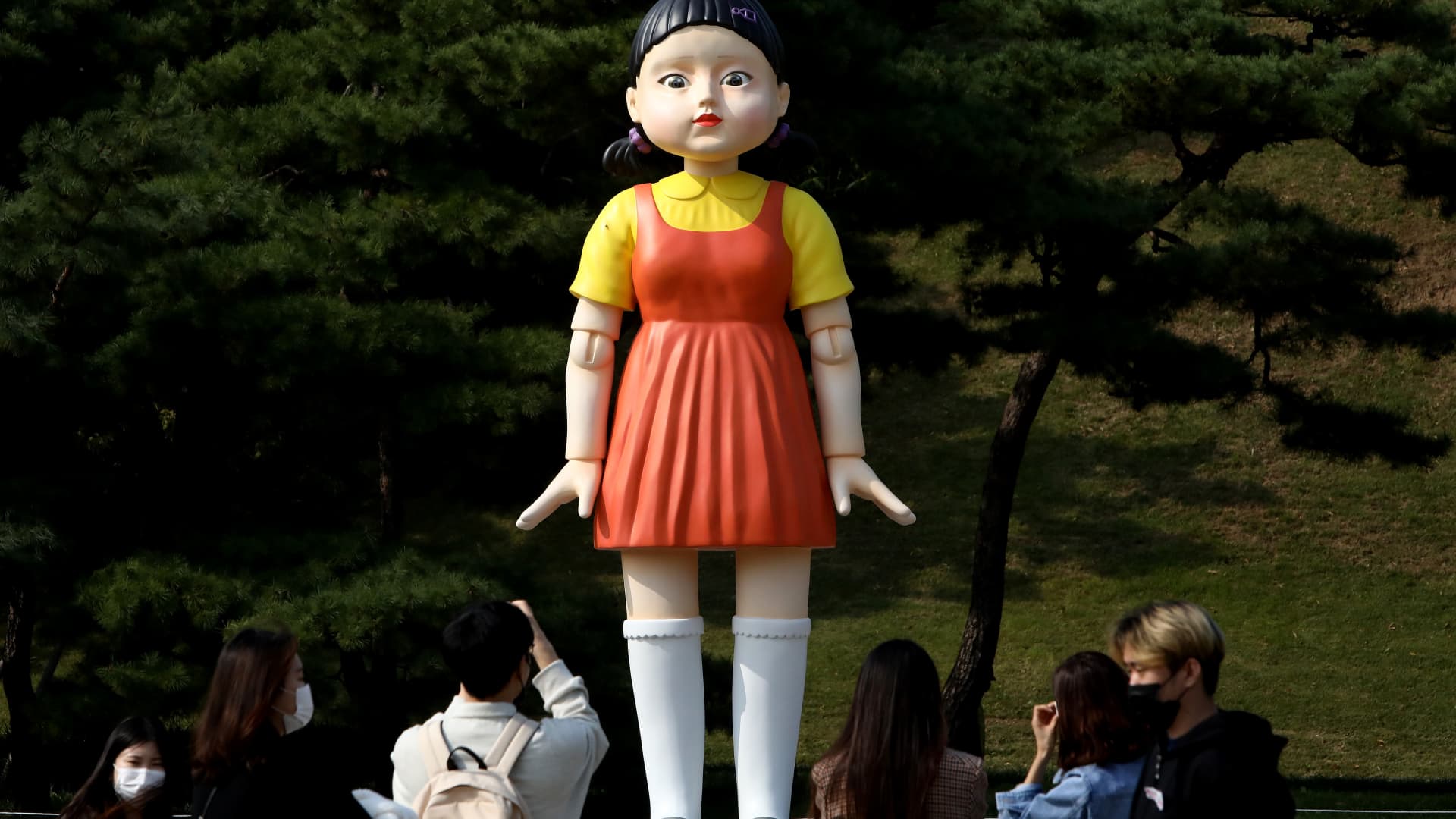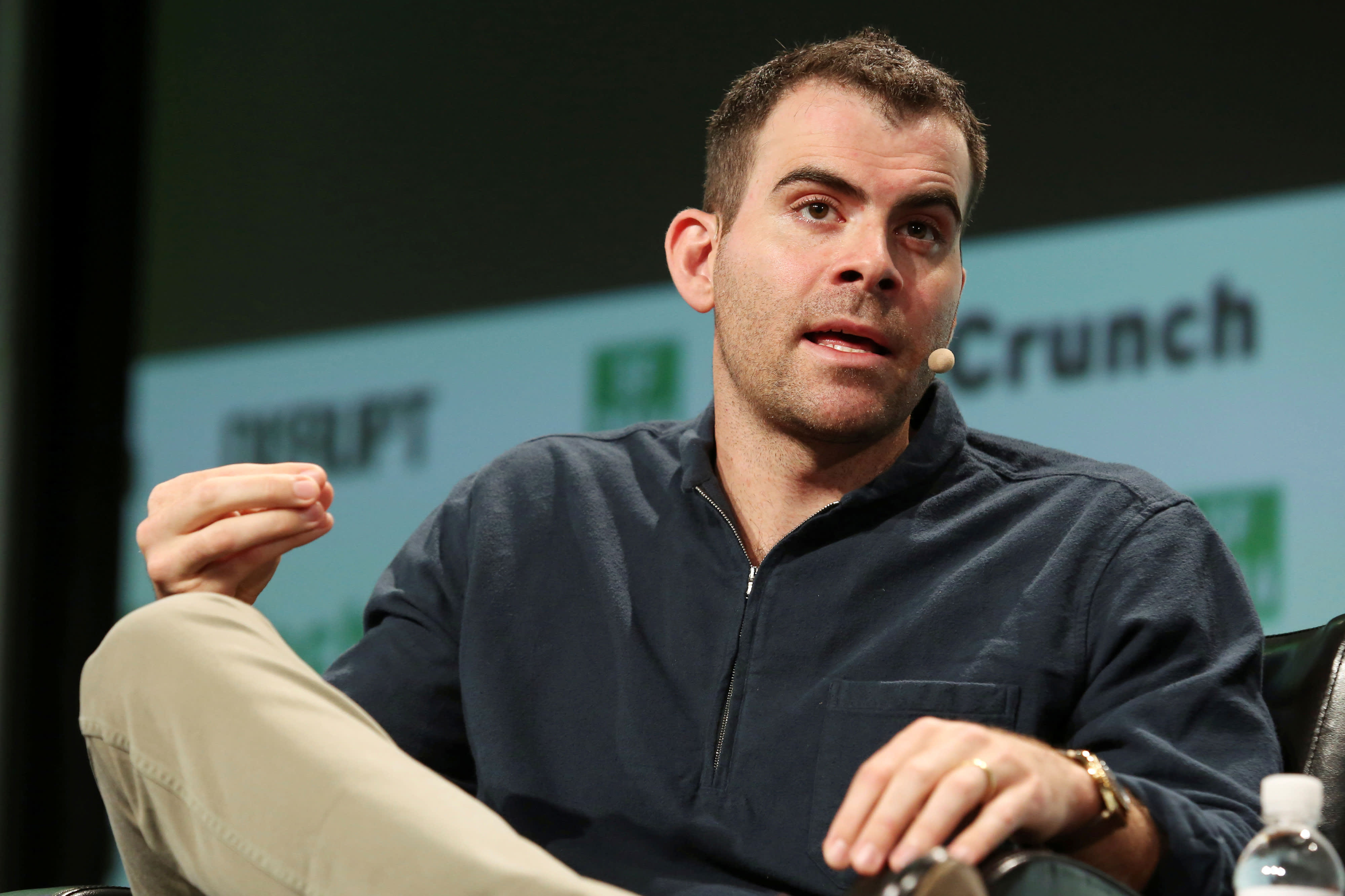Netflix's $2.5 billion investment in Korean content appeals to audiences worldwide
By expanding its slate of Korean series, films and non-fiction shows, Netflix aims to increase the success that Korean content has found with global audiences.

Younghee, the giant robot doll from Netflix thriller "Squid Game," exhibited at the Olympic Park in Seoul, South Korea. "Squid Game" was a global success and remains Netflix's most-watched show of all time.
Chung Sung-jun | Getty Images
Netflix is spending $2.5 billion on Korean content and sees opportunities beyond the Asian region, said Don Kang, Netflix's vice president of Korean content.
Over the next four years, Netflix will invest $2.5 billion in various types of Korean content spanning TV series, films and nonfiction shows, Kang told CNBC's "Squawk Box Asia." He said it will double the number of nonfiction shows it is producing, from about four in 2022 to at least eight this year, reflecting the Korean audience's demand for variety shows.
These include the reality show "Physical 100" it released earlier this year, which features a hundred contestants battling each other in a series of physically strenuous challenges.
"I think that was really the first nonfiction show to have global viewing, getting people really excited," he said. Korean competition or nonfiction shows don't typically travel very far outside Korea and the Asia-Pacific region, but Kang said the success of "Physical 100" is a "really positive sign."
"Physical 100" topped Netflix's weekly viewership for non-English TV shows for two weeks in 2022. Another Korean variety show that earned global success in 2022 was reality dating show "Single's Inferno," which Kang said featured in the global top 10 list.
Expanding to a global audience
Kang said he worked on the international distribution of Korean shows before joining Netflix in 2018. "Back then it was mostly romantic comedies" that received traction, he said. Distribution was limited to nearby countries like Japan and other Southeast Asian nations due to language and cultural differences in other regions, he added.

But Netflix invests in localization through subtitles and dubbing, which removes language as a first barrier to entry and "makes a world of difference," he said.
"You can't underestimate the ... diverse tastes that people have all around the world," Kang said, citing the thriller series "Squid Game" as an example. Netflix had considered changing its title to something with more context for international viewers, but ultimately kept its original "catchy title that provokes curiosity," said Kang.
Netflix's slate of Korean content announced so far for this year also diversifies away from romance, including genres like drama, apocalyptic as well as social commentary and intrigue alongside its nonfiction shows.
Kang said Korea has the ability to tell stories that convey its unique culture, but also resonate with the universal emotions of global viewers. "When a show is loved by a Korean audience, it has a very, very high likelihood of being loved by audiences ... around the world."


 Aliver
Aliver 




























.jpeg?trim=0,89,0,88&width=1200&height=800&crop=1200:800)


